
The Darrell McClain show
Independent media that won't reinforce tribalism. We have one Planet; nobody's leaving, so let’s reason together!! Darrell McClain is a Military veteran with an abnormal interest in politics, economics, religion, philosophy, science, and literature. He's the author of Faith and the Ballot: A Christian's Guide to Voting, Unity, and Witness in Divided Times. Darrell is a certified Counselor. He focuses primarily on relationships, grief, addiction, and PTSD. He was born and raised in Jacksonville, FL, and went to Edward H white High School, where he wrestled under Coach Jermy Smith and The Late Brian Gilbert. He was a team wrestling captain, District champion, and an NHSCA All-American in freestyle Wrestling. He received a wrestling scholarship from Waldorf University in Forest City, Iowa. After a short period, he decided he no longer wanted to cut weight, effectively ending his college wrestling journey. Darrell McClain is an Ordained Pastor under the Universal Life Church and remains in good standing, as well as a Minister with American Marriage Ministries. He's a Believer in The Doctrines of Grace, Also Known as Calvinism. He joined the United States Navy in 2008 and was A Master at Arms (military police officer). He was awarded several medals while on active duty, including an Expeditionary Combat Medal, a Global War on Terror Medal, a National Defense Medal, a Korean Defense Medal, and multiple Navy Achievement Medals. While in the Navy, he also served as the assistant wrestling coach at Robert E. Lee High School. He's a Black Belt in Brazilian Jiu-Jitsu under 6th-degree black belt Gustavo Machado. Darrell Trains At Gustavo Machado Norfolk under the 4th-degree black belt and Former Marine Professor Mark Sausser. He studied psychology at American Military University and criminal justice at ECPI University.
The Darrell McClain show
Reforming Bail, Ensuring Safety, and Pursuing Effective Justice Solutions
Embark on a thought-provoking journey with me, Daryl McClain, as I'm joined by renowned attorney Ken Good to dissect the contentious issue of bail reform and its contribution to fluctuating crime rates. Ken brings his wealth of appellate law experience to our in-depth discussion, where we scrutinize the balance between advocating for criminal justice reform and addressing public safety concerns. From exploring the role of judicial discretion in pretrial releases to the polarizing interpretations of crime statistics, our dialogue uncovers the nuanced realities behind this national debate. Ken's insight into recent legal developments offers a fresh perspective on the often-misunderstood implications of bail reform, making this a must-listen for those passionate about the intricacies of our criminal justice system.
The conversation doesn't stop there; it traverses through the murky waters of the bail industry and alternative models, illuminating the constitutional debates surrounding the system. Ken and I tackle the thorny political challenges faced by those trying to reconcile campaign promises with an increase in crime rates, as seen in places like Oakland, Harris County, Washington DC, and New Jersey. Through anecdotes and a critical review of the private bail system, we uncover the real-world impacts of zero bail policies and the search for effective alternatives. The realities we unveil are sobering, detailing the consequences on communities and the urgent need for viable solutions.
As we wrap up our talk, we probe into the broader implications of criminal justice policies, from the decriminalization of petty theft in California to drug policy outcomes in Portland. We discuss how such measures affect public safety, commerce, and the well-being of those battling addiction and mental health challenges. Our examination is both personal and analytical, as we review empirical evidence to guide us toward strategies that promise more effective crime prevention and rehabilitation. Ken's expertise and our collective insights aim to shine a light on the path forward for criminal justice reform. For those seeking to deepen their understanding of these critical issues, our dialogue is an enlightening resource filled with wisdom and actionable knowledge.
Welcome to the Daryl McClain show. I am your host, daryl McClain. Today is 1-9 of 2024 and we have something very special for you. We have an interview going on Now.
Speaker 1:The ongoing debate over zero bail policies and the increase in crime across the country has become a hot topic of national significance. The crosswords of this contention is issues are criminal justice reform advocates who contend that releasing individuals charged with a crime back into society for free pending trial not only promotes fairness but also results in a decrease in crime rates. On the other side, law enforcement and victims, right groups alongside the bail industry argue that releasing defendants without any accountability poses a serious threat to public safety. Now the polarized debate is capturing the attention of both policy makers and the public, with both sides presenting compelling arguments and supporting studies to bolster their claims. We make this debate particularly intriguing in the contention between two sides regarding the interpretation of crime statistics. Now, while criminal justice reform advocates argue that any increase in crime is a particular issue rather than a factual one, their opponents contend that the statistics are facts, are inarguable. The former contends that the crime overall is going down across America, citing a big picture view. Meanwhile, supporters of tougher laws are looking at specific jurisdictions where bail reform has been implemented. They contend that violent crime specifically has increased dramatically in these regions.
Speaker 1:In a recent CNN story, the former deputy commissioner of intelligence and counter terrorism for the NYPD cited a survey conducted by the National Retail Federation. Of its members showed that 81% felt that retail crime had grown more violence from the previous year. He also noted that the retail giant target had closed stores in New York City, portland and Los Angeles and all cities which had implemented some form of bail reform in recent years. So we are going to have the luxury of talking to this subject with a Mr Ken Good Now about.
Speaker 1:Ken Ken is a graduate from Hardin Simmons University in 1982 with a bachelor's of arts degree. He received a master's of education degree in 1986 from Tarleton State University, a part of Texas AMM system. In 1989 he received his law degree from a Texas Tech School of Law, where he was a member of the Texas Tech Law Review. Mr Good has argued cases before the Supreme Court of Texas and the Texas Court of Criminal Appeals all over numerous court appeals, including the United States Court of Appeals for the Fifth Circuit. Mr Good is married with two daughters, so we are glad to welcome him to this show to talk about this pressing matter of bail reform and welcome Ken to the show.
Speaker 2:Well, thank you for having me.
Speaker 1:So you heard me reading your intro and I'm just trying to see, like, what perspective do you take on this issue and how did you become important to you?
Speaker 2:It became important to me because I attended a hearing early on in the case of O'Donnell versus Harris County and I listened to the hearing and I became a person. Okay, what got me interested in this area of the law was I think part of it is my background. I've always been interested in appellate issues. When I was in law school I was on several national teams on appellate type legal issues and I was on a team where a brief was selected as the best brief in the nation. And so when I entered private practice I started or I continued that interest. I've argued cases at Supreme Court of Texas, the Court of Criminal Appeals. It seems like whatever I've been doing, I've continued my appellate interest.
Speaker 2:And so I was asked to go to a hearing in the O'Donnell versus Harris County case, which was the first case that kind of reached national attention in this bail-related criminal justice reform movement, and I attended the hearing and I became very concerned.
Speaker 2:I thought the judge was off base, I thought she was not applying the law correctly and I didn't think even the parties were arguing the issues correctly. And so I came out of that hearing professing concern and I set about to become knowledgeable on the issues of equal protection and to process and how it applied to bail issues and criminal justice issues. And I've written since then. I've written numerous articles on these issues and I think history has proven me correct, because now Judge Rosenthal, who was the judge in O'Donnell, has been reversed six, seven, probably eight times on these issues and the most recent case, which is Davis versus Dallas County, went up to the Fifth Circuit and the Fifth Circuit said both reversed O'Donnell and ruled that both Davis and O'Donnell should have never been filed in federal court. And then yesterday the United States Supreme Court denied cert on the Davis case, so that those two cases that have finally come to an end as of yesterday.
Speaker 1:Well, that's good. How do you think that? What did you think? It went off the rails as far as even with the judge not presenting the facts correctly.
Speaker 2:Well, I think where they went off was the plaintiffs were arguing that people have a right to release, so you can never hold somebody, even if they're a gang member, a career criminal or a member of organized crime. There is no situation that you can hold somebody in jail, pretrial, even if they say, if you let me out, I'm going to run. They were arguing that there's no situation where you can hold them if they're not charged with an offense set out in the Constitution that allows you to hold them and I think fundamentally that's wrong. I mean judges have the ability to say I mean the whole purpose of pretrial bail is what assurance are you going to give the court that you're going to return and respond to the charges? And if the court gets the opinion that you're not going to come back, the court has the right to hold you. That's not. I mean I think they misapplied the law there and also I think Judge Rosenthal did great damage to the legal system across the United States because there were other courts that followed her ruling and I think she was fundamentally wrong.
Speaker 2:She wrote a dismissal in the Russell versus Harris County case, which was a subsequent case which was going to extend O'Donnell, and she was going to do it until she started losing, or the Dave's case started losing, on that position getting reversed. And so in October she wrote a dismissal in the Russell case and she wrote an impassioned plea for the US Supreme Court to grant cert, which they just denied yesterday. And I think she was just absolutely wrong. She drank the Kool-Aid and became invested in the plaintiff's position and did not realize the terrible injury she was doing to the criminal justice system.
Speaker 1:And what is the important role for the bail system, the industry, in the criminal justice system? And the secondary question is if there's been damage done, how can the general public or lawyers start to claw it back?
Speaker 2:They're moving back in the right direction, Okay so what is the importance of the bail industry to the criminal justice system? There was a news nation town hall and if I was going to quote a mayor, a Democratic mayor, I would quote one of the mayors in that town hall. This is what she said Until you have an alternative to the private industry that has the same low failure to appear in so everybody goes to court and the same high level of accountability, then you don't have an alternative, and I believe that's true. The bail industry has the lowest failure to appear rate.
Speaker 2:I mean and if you think about the criminal justice system, failure to appear rate means everything. If you have less than a 10% failure to appear rate with one mechanism and then a 40, 50, 60, and 80% failure to appear rate using simple release mechanisms, like are being used in California for misdemeanor court or being used Harris County right now on misdemeanor courts and 80% failure to appear rate, you can see the backlogs are impacted immediately because criminal cases have to be put on hold. If you miss court, they have to be put on hold till you come back. And what people don't realize is the bail industry has an incentive to go find you. So if I don't show up for court, they have an incentive to go find me.
Speaker 2:But if we use one of these simple release mechanisms, then no one's going to look for them. They're just issuing a warrant. So they either have to come back willingly or they have to commit another crime to be brought back into the system, and that difference creates a huge impact on the criminal justice system. Simple release mechanisms drive up failure to appear rates, gives a green light for people to commit more crime. It creates chaos through chaos. You no longer have the ability to hold anybody accountable because there's chaos and it pushes for de facto decriminalization, because at some point, the criminal justice system is just going to go crazy and it's going to collapse unless you start dismissing cases. Harris County in August of 2021, they had a report of all the cases in misdemeanor court that they resolved for the month. Over 90% were dismissed. That's what happens when you use these simple release mechanisms no accountability can be had.
Speaker 1:So when you say the simple release mechanism, is that just where they release somebody on their own recognizance under the honor system that they're going to return?
Speaker 2:Yes, and it depends on where you are in the country, on what you call it. Like California would be called zero bail, new York would call it release without bail. In Texas we would call it release on a personal bond, which it's your personal promise to show up. But they're all the same thing. You're being released, like you said, and we're counting on you to come back on your word. And that's the problem. The whole foundation of that thought was well, people want to come to court, they want to get their case resolved. We've learned in the last two years that's not true People don't want to go to court.
Speaker 2:They don't want to be held accountable and if you tell them they won't be, they'll take advantage of it by committing more crime. There's a report from Yolo County, California, that during COVID they discovered that if somebody was released on the zero bail simple release mechanism versus a surety bail surety bond, the person released on simple release had over a 200% greater chance of committing a violent offense in the next 18 months. Wow, that speaks for itself and so.
Speaker 1:So the people who believe in the, in the zero bail model, are the simple release model. What is their objection to the bail industry? Is it that they say, if not everybody can afford it, or what arguments do they make?
Speaker 2:Well, they started out arguing that the current bail system was unconstitutional, so we had to change to something else, and so that's why they started all this litigation. But now we've had two courts of appeals and the Supreme Court has denied multiple petitions for cert, saying that bail is constitutional. So we've had Sanchez versus Alabama say that Bell's constitutional, calhoun versus Georgia I think they said that Bell's constitutional and the Supreme Court tonight's cert. So then their arguments became well, this is fundamentally unfair. But then we go back to hey, until you have an alternative that has the same low failure to appeal rate or the same accountability, you don't have an alternative. So if you try something else, that's going to require you to have double the amount of courts to resolve the same number of cases Under the current system of private bail, then you don't have an alternative. And that's really the reason why the bail industry has been around for 200 years. Nobody can reach their level of performance. And so now you just have this argument Well, the poor are being taken advantage of.
Speaker 2:Look, no one is questioning that. We have to have Alternatives to protect the poor. But once you have a criminal history, you don't, you don't have a right to run. Run free on your own promise once you have a criminal history. And so I think now it's just becoming political. It's becoming, you know, if you're a one extreme of the political spectrum, you have to be Against the private industry, no matter the result. I think you could look at what's going on across the country and you would say those politicians are in a box. Because look at Oakland, california, the NAACP in the last five months, six months, came out with a letter Attacking their local officials and they said we need a state of emergency on crime because crime is so bad right now. And the local officials were like oh no, it's so terrible that you're taking the talking points from the other party and they're like and you know, the Regional NAACP came back and said no, we support the local chapter. Crime is running amuck. So I think the some of these politicians are in a box.
Speaker 1:They supported it to get elected and now they cannot reverse course, even though they know they need to yeah, I think that do you hit the nail on the head, because I think that what people look at is kind of the extreme, one-off case where Somebody was, was put on bail or was incarcerated and they couldn't afford to get out, and then that person was innocent and then their life was ruined and they take that as the Overarching thing where and they try to apply that model.
Speaker 1:I know personally people who had bench warrants because they didn't appear and they had no intention, you know, of appearing. They, they Left the court and basically went right home and started saying their goodbyes, you know, and, and were free for years until they got pulled over, you know, for traffic violation, and then, and then the bench warrants shows up and and sometimes it was something small where it was like you could have appeared and it was a fine and, and another time it was. I have a co-worker whose spouse Was abusive, literally left and told them it. Basically she was telling them, if this person leaves, you know, we, I am in danger, you know, and she had to leave her home and it's been like running living in hotels for the past two years and they're still looking for the guy.
Speaker 2:Well, there's so many examples, especially in Harris County, where we've seen some of these reforms tried by court fiat, by the old Donald case, which has now been reversed.
Speaker 2:And the problem with it is, you know, it got to the point when it got to the really bad extreme. You know, before if you were accused of murder you got held in jail, but now suddenly you you had, you know, they had court saying oh well, we're gonna release you. We have to release you because you know, we, we had these arguments being made that you can't hold somebody if, if, if, the Constitution doesn't allow it, and so, until that argument was reversed, you know we had courts doing that, and so it got to the point where I was arguing in Harris County, texas, in Houston, texas, you get one free murder before they're going to hold you in jail, just like if you were a dog. You get one free bite. And Finally, I think you know, with SB 6 passing and also with Some of these cases being reversed, you got some judges who are actually saying, hmm, Maybe what I was doing was wrong and they've gone back to what they've done historically.
Speaker 1:Yeah, and have you think they haven't come up with any alternatives, because in all reality there's just not any viable solutions.
Speaker 2:Yet I mean until there is an alternative. You know there's. What group was it? I'm the? The beer Institute came out Probably a couple years ago and they argued to the judges oh, any alternative to the private industry is going to have a 40% Failure to appear right.
Speaker 2:But that should be okay. And and I'm like well, you just showed that you don't understand the criminal justice system a 40% failure to appear right Shuts down the criminal justice system. I mean, the bail industry has less than a 10%, I don't care what people say, it has less than a 10% failure to period. If it's higher than that, you're going to go out of business. And so until we get something, you know what there are jurisdictions that have gotten close to the Belanger. It's still not as good, but the cost was so high. You've got Washington DC and you've got the New Jersey model. But the New Jersey plan they had to do a statewide tax increase and it still ran out of money.
Speaker 2:And then I did a podcast with somebody from From Washington DC and they said straight up if we had to decide to do what we're doing now, it would never pass because it's so expensive. So the problem is to meet. You can't ever beat it. But to get close to what the private industry does, you would. It would be so expensive that you would never be able to fund it, and part of this reform of the criminal justice system this belt is looking for cheaper options, and so anything that's gonna cost more money. That's why you're looking at the. The alternative is simple release. We're just gonna take your word because that's as cheap, because the private industry didn't cost anything, and so what they don't realize is the failure to appear stack up. More crime is caused as the result, and so that has a much heavier expense than just holding them in jail until their cases resolved.
Speaker 1:So effectively? What does the bail enforcement officer and officials do to make their model so successful?
Speaker 2:Well, okay, so I can speak to Texas and, I think, others. You know bail is run by each individual state, but it's but I think other states are very similar. So in Texas we bond somebody out of jail. So we, the industry, is making up its own risk assessment or its own determination of whether this person is someone who should get out of jail. Because you know we're promising that if they don't show up at court, we're going to pay 100% of the face amount of the bond. So if it's $100,000 and they don't show up, then we're going to pay $100,000. So once you once. So if I'm sent for a hearing and I don't appear, the industry has an incentive. So you need to get them back. You need to get them back quickly and if you do, you will owe less money. So the reason why the private industry does so well is because they keep track with them. They have the highest accountability, they have the highest supervision, they have everything from. Sometimes they'll have an app that they check in on that tells their GPS location every time they check in. Or, if it's a high-risk bond, they make them come to the office once or twice a week to check in. So they're always talking to them. I mean, the problem with the government is the government does, never does anything really really well, and I think it's very difficult when you're, when you can't hire really high value employees to do the job of the private industry, and so the balance keeps track of you. And then we, if you don't come to court, we usually have a relationship with you so that you trust us and so we can talk you into coming back to court, or we know a good general area of where you are. And then we have Texas. The bondsman can't arrest, so they can locate and then they can either notify law enforcement where you are or we can hire a recovery agent to take you back to jail. And if it's done by a certain deadline, then you pay a lot less than the full amount of the bond. But if I mean it's a strict deadline and if you don't meet it you're going to pay 100%, and so that's the biggest incentive for the industry that works.
Speaker 2:And I think I think on the larger scale, the reason why the private industry does such a good job is we involve family members, and everybody says that's a bad thing, and let me tell you I don't. I don't think that? Because when, when I have my family, I'm a failure. I've been arrested 10 times and the charges have gotten worse each time. But I have a family member come in and say, ken, I'm going to stand up for you and I'm going to help get out of jail Because I think you have value and I think you are worth saving.
Speaker 2:Well, I mean, I mean, I like to say the criminal justice system is some of these people's last chance earn around and become productive citizens. And how much more impact does it have when your mom is saying you're a screw up, but I think you have value, I think you can become productive. Or your brother comes in and does that, or your sister, or your whole family as a group kind of stands up for you. I think I think we are discounting that value, and that is something that the public sector can never do.
Speaker 1:Yeah, and the public sector too also is because a lot of people they would be overwhelmed because of the massive case load and so it would become just as bad as the trust me model. You know, trust me, I'm here, you know I'll be there. Meanwhile your cousins got your phone and they're just texting and you've already fled the country and but you know, and these are not.
Speaker 2:I mean, the problem is a lot of these people are people who have not been productive. They they've, they're screw ups, they've. But you know, our, our, the criminal justice system are our friends on the. You know our people who are arguing for reform. They just say, okay, we'll give them a phone and we'll text them when they go to court. Now we're buying them. I mean, these are nomads that they're going to sell their phone or they're going to break their phone. They're not going to keep it for a couple of weeks because they don't want anybody. They're either paranoid, they don't want anybody to know or they're going to sell it for drugs or something, and so those things do not work.
Speaker 2:I mean it gets you a little bit better appearance, right, but it does. It's still far, far afield from what the private industry done?
Speaker 1:What do you think that they can find a bit of the compromise on the issue? Or do you think that because the people that have tried to bail reform model hasn't been working, it's going to eventually work itself out?
Speaker 2:Well, you know I'm a big believer in compromise, but I think this is one of those issues that's going to be hard, because it's hard to compromise when the other side won't agree with you about what the facts are. I mean, look at this issue about whether crime is going up or whether it's not. I mean, I did a debate with these attorneys that file these lawsuits across the country and they adamantly say crime is not increasing, unlike you know, the NAACP of Oakland says it is. Property values in San Francisco says it is. And because they're selling commercial buildings for 25%, 50% of their value over two years ago because of crime, the Nancy Pelosi Federal Building is telling all the federal employees don't go to work, work from home, it's not safe to park your car and walk from your car to the building, and so that seems like a problem with crime.
Speaker 2:But what they're doing is they're citing these national statistics that say, oh, crime is going down, but the vast majority of the country is still using criminal justice theories that we know work, and so they're actually talking out of both sides of their mouths. They're getting their little tricks and things being done in these urban areas, which is an absolutely increasing crime, but then they're citing national statistics where the majority of the country follows the tried and tested methods of criminal justice and they're saying, see, crime isn't going up and everything else is just a perception issue. And that's what we heard at the last election. It worked. Probably it will not work again. I mean, I don't see how you can say crime is not going up when the NAACP in Oakland is saying we need a state of emergency on crime.
Speaker 1:See, now I can see I did law enforcement, security, private details, blah, blah, blah from 2009 all the way till June of last year, is what I finally gave it up, and I know that it was. It was going crazy. It was part of the reason I left. I was. I kept seeing it get worse and worse and worse, so much that when I started working part time at the 7-Eleven you know, and this is in Northwest Virginia they lock the doors to the, to the coolers now, and they make the cashiers physically go back and get the items because they say you know, we apologize. It's just very high theft, you know, and you're, you're independent on somebody.
Speaker 2:Well, I wonder, you know, I look at California, where we've essentially decriminalized theft under $950 and I'm like is that one of the reasons why you're saying it's crime is going down Because we didn't decriminalize theft under $950? I mean, if we're going to be honest, it's not more public safety, it's less.
Speaker 2:Yes, you got businesses closing because they can't withstand all the shoplifting. I mean I have a big hope, because all of that's not sustainable. We cannot function as a society, and so eventually I think things will correct itself, because what we're currently doing is not sustainable.
Speaker 1:Yeah, and I lived in DC for a little while because I worked for a security contract for a Nova Fair Oaks. I was a dispatcher and I was shocked when I went to DC saw how pretty it was and I was going to. I think maybe the store was safe way and I just would see people just go and grab stuff and just walk right out of the store.
Speaker 2:My daughter was in college and she wanted to do an internship in DC and she applied to be an intern at the White House and she was accepted and she was one of three interns in the West Wing Daily for a semester and I was like, well, I'm glad you were accepted, but you can't go because it's Washington DC. But I had no say, she went and we went visitor. But I'm telling you I was scared to death over the crime issue. I'm like I didn't want my daughter, who I love very much, I did not want her to be a story on the 530 News.
Speaker 1:Yeah, and I could see, because where I was at was literally I lived on 16th 16th street in Washington DC. I was one block from the White House and it was just like everything you would see just in that general area, from the drugs to the robberies to the homeless people and tents everywhere cursing on everybody freely. I've seen, I know a lot of that stuff happens in big cities, but I don't think it can be categorized as if it's gotten better.
Speaker 2:I think it's just no, no we're doing a disservice to the public.
Speaker 1:Yeah, they just when all these people are living in tents.
Speaker 2:we're doing a disservice to them If we would get them into the criminal justice system and use that as leverage to force them to go to rehab for either drug treatment or mental health treatment and get on their drugs. They would be better off than just living out the rest of their life until they overdose and die on the streets. That's what we're doing, because we're saying we can't force them to go to rehab, but we can offer all these programs. We're going to spend hundreds of million dollars on programs that nobody is using, like in Portland, they found that less than 0.1% of people are taking advantage of the programs that they're offering that they're spending hundreds of million dollars on. Their solution is to spend even more on these programs. No, let's make what's going on a crime. Let's use that as leverage to force people to go to rehab, because rehab has a 75% failure rate, so they got to go multiple times. We're giving up on these people and we're allowing them to die on the streets. That speaks so poorly of us as a society.
Speaker 1:I agree with that in the whole because I think a lot of the times people at least and this is from the police anxiety I used to say I used to feel like people try to use police to fix society problems that police were not trained to handle. I'm like that's where everybody else looked away from the problem. They just want to hide it.
Speaker 1:I don't really have a solution to fix it. I can just see. I always say states are like little models of democracy, so I don't have to guess what works. I get 50 of them a stare at.
Speaker 2:We know what works and what works is. We teach it in our colleges. On criminology, what's been going on the last few years is not anything we teach in criminology classes. We've been either innocently trying things that do not work or being led down a primrose path by groups that know it doesn't work but that's what they want. We need to go back to what works. I think you're going to see the mayor's pushing, because they're the ones that are being impacted the biggest with drops in tax revenue and they're not going to be able to provide services. They're going to see buildings. They're going to default and then you're going to see the danger of cities defaulting. You're already seeing calling for change and I think that will continue.
Speaker 1:That's how it's going to start with the mayors. I just want to know what's the opposition to that. I thought it was a great idea with the. You get them in the system, you get them into a rehab program. What's the opposition against that?
Speaker 2:Well, we don't want to make drugs a crime. Look at Portland. They decriminalized all heavy drugs and they said we will get to where you want quicker by decriminalizing drugs, and then you will see the demand for them go down. Well, that hadn't happened. I mean, portland is an open opium den and record numbers of people are ODing every month, and so what they claimed would happen did not. And what you're seeing now, with all these failed theories, they come back and say oh, we just need more time, we just haven't had enough time. Well, you know, how long do we have to wait? How many people have to die before you're ever going to acknowledge that it's not working? And I think I've come to the conclusion they'll never acknowledge that. That's the reason why we can't compromise with them, because they are not willing to admit what the facts are. They will always argue about the facts, and so until they will, when they realize that this is all just political rhetoric by their side, they have an agenda. We can't. We just gotta vote them out.
Speaker 1:So in Portland, if I'm not mistaken. That's the state that recently decriminalized opioids all heavy drugs magic mushrooms. You know everything and that was that last year they did that.
Speaker 2:I think it was a couple years ago now. So yeah, it's been devastating to them. I mean they've had people start calling for reintroducing crimes for drugs and I mean they're going to do it by half measure, it's going to continue to fit.
Speaker 1:Yeah, they're going to slow walk it. So you have your magic wand, you're in charge, you get to be emperor for a week. How do we fix this situation?
Speaker 2:We fix it by. I mean, people are going to say this is self-serving, but I think we fix it by doubling down our reliance on the Bell industry, because that's how we get people to court. Look at Illinois. You know their crimes started going up years ago when they got rid of the private Bell industry and more recently they just got rid of cash bonds. That's not the private industry. They were requiring people to post cash and the problem is they were relying on that money for court operations and to some percentage. And so you got. They were relying upon people's failures to appear to run the courts and so they couldn't hold e-bike accountable, because they needed that money.
Speaker 2:And so we need to figure out that all those things cannot work.
Speaker 2:We've got to hold people accountable when they don't show up, hold the Bell industry accountable when they don't do their job, and then get people through the system.
Speaker 2:I mean, like in Texas, we have a 20 percent. The prison population is down 20 percent because during COVID they released a lot of people and cases haven't been through the system. So we've got a huge backlog of people in the county jail system because the cases have not been tried and we've got to get that those cases through the system and send them to the state prison. And we've got to figure out well, look, if we don't hold misdemeanor people accountable, that's the training ground for tomorrow's felony people. And if we're going to just detain a, release, all only the bad people, then the jails are full of really bad people because we're not letting anybody out, even the people that will follow the rules, and we have no space to hold anybody accountable for low-level crimes and they'll just run amok. And we've seen that gangs, career criminals and organized crime figure out ways to make millions of millions of dollars every day off of them.
Speaker 1:Yeah, I agree. I mean, I've seen it as a slippery slope thing just because I work for a private owner of several gas stations in this area. 7-eleven's are on every corner and I've seen how much inventory they lose when we get the audit every month. We talk about forty thirty thousand dollars monthly, and so you just sit around wondering like how is that fair to that guy who that's coming out of his pocket? He's got to pay the distributor, no matter what. You know, that's right that's right.
Speaker 1:I've seen people come stand right in line, eat the food, drink the drinks. Come right to the register. I don't have any money for it, and you know. And then people look at you like were you gonna really call the police because he ate ten dollars worth of food? And it's like what am I supposed to do?
Speaker 2:Well, if it's the twelfth time they've done it, what are you supposed to do then?
Speaker 1:I think it's one of those things where people think it's small because they're not the one having to flip the bill.
Speaker 2:Well, if the choices between that are closing down the business, what does the public want? Does the public want your business closed down and they have to go somewhere else? They want the convenience of going to your business and that's if having public safety and punishing. If people would like to have more information on these issues, they can go to our website, the pbtxcom, which is the professional bondsman of Texas, and you can also view our blog, which there's a link on the menu, and you can also visit our podcast, which is called thebeltpostcom there's a link on the menu, or you can just go to thebeltpostcom and we talk about criminal justice issues, mostly from educating legislators and the public. And so if you want to know what the New Jersey plan is, we have a podcast on that. If you want to know what happened in the case of Dave's versus Dallas County, we have a podcast on that. If you want to know what happened on what's going on in other states, like Hawaii and Bale, we have a podcast on that as well.
Speaker 1:And so those are things that you can do to keep up with criminal justice issues and we release two podcasts a month oh nice, how long have you been doing that? A podcast? We are fixing to start season three this week oh nice, nice. So I'm going to link to all of that stuff in the show notes and so you guys can have some studying to do if you have some questions. And I do like what Ken said earlier, where he's not just listening to the arguments, he's going back to the facts and looking at the facts of where people have tried what thing and what has worked, and we have to at least go back to the tried and true methods we know work until we come up with a healthy alternative. Thank you so much for for joining the show today, ken. Well, thank you for having me.
Podcasts we love
Check out these other fine podcasts recommended by us, not an algorithm.

The LUNSB Show with T-Bone and ChickBrew
Tony Knuckles
Over opinionated with Josh Scott
Josh scott
The Jamie Kilstein Podcast
Jamie Kilstein
The Back Row with Jamie Kilstein
Jamie Kilstein
Your Calvinist Podcast with Keith Foskey
Keith Foskey
BJJ Mental Models
Steve Kwan
Renewing Your Mind
Ligonier Ministries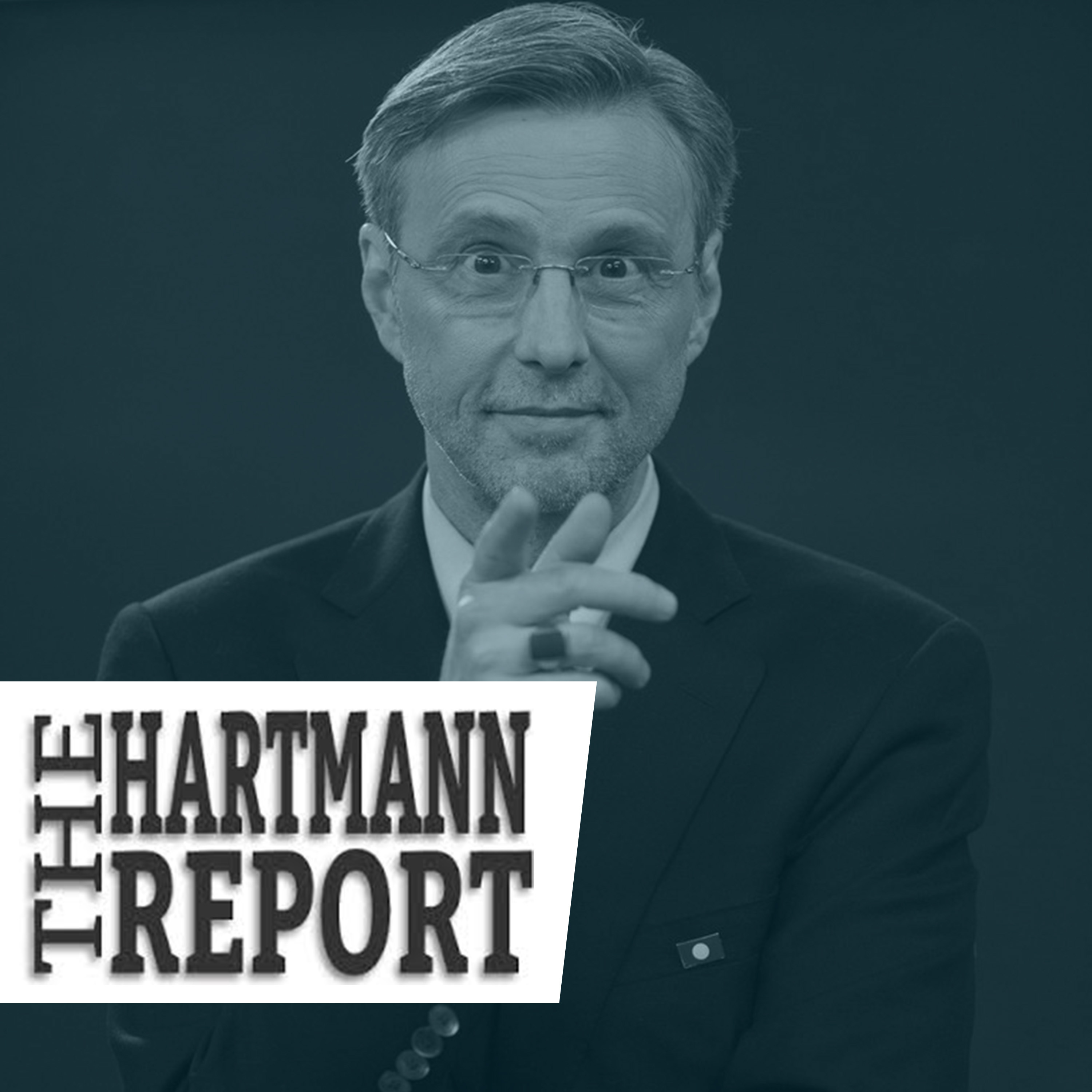
The Hartmann Report
Thom Hartmann
The Glenn Show
Glenn Loury
#RolandMartinUnfiltered
Roland S. Martin
Newt's World
Gingrich 360
Pod Save America
Crooked Media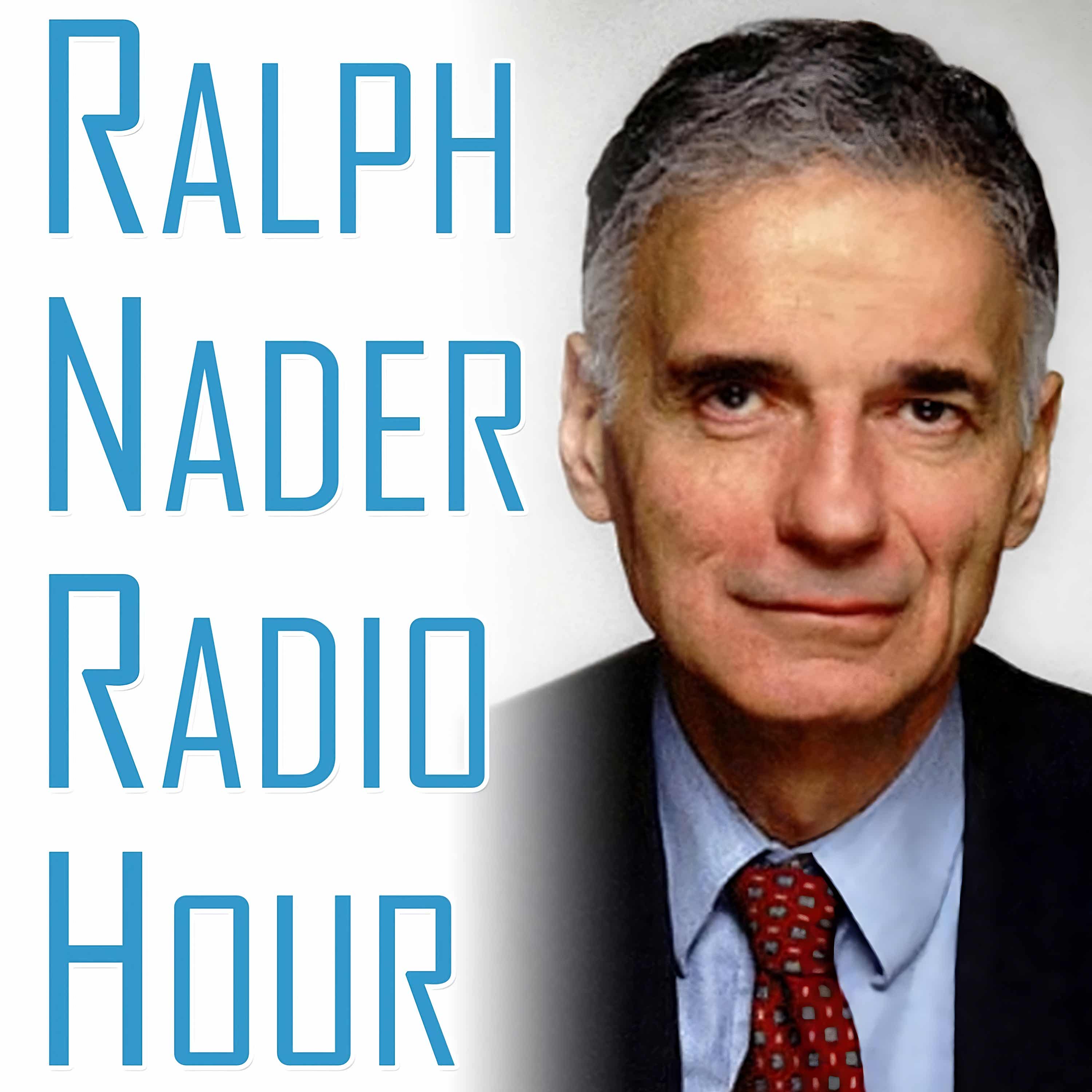
Ralph Nader Radio Hour
Ralph Nader
Bannon`s War Room
WarRoom.org
Bannon’s War Room
dan fleuette
The Young Turks
TYT Network
The Beat with Ari Melber
Ari Melber, MS NOW
The Damage Report with John Iadarola
TYT Network
The Majority Report with Sam Seder
Sam Seder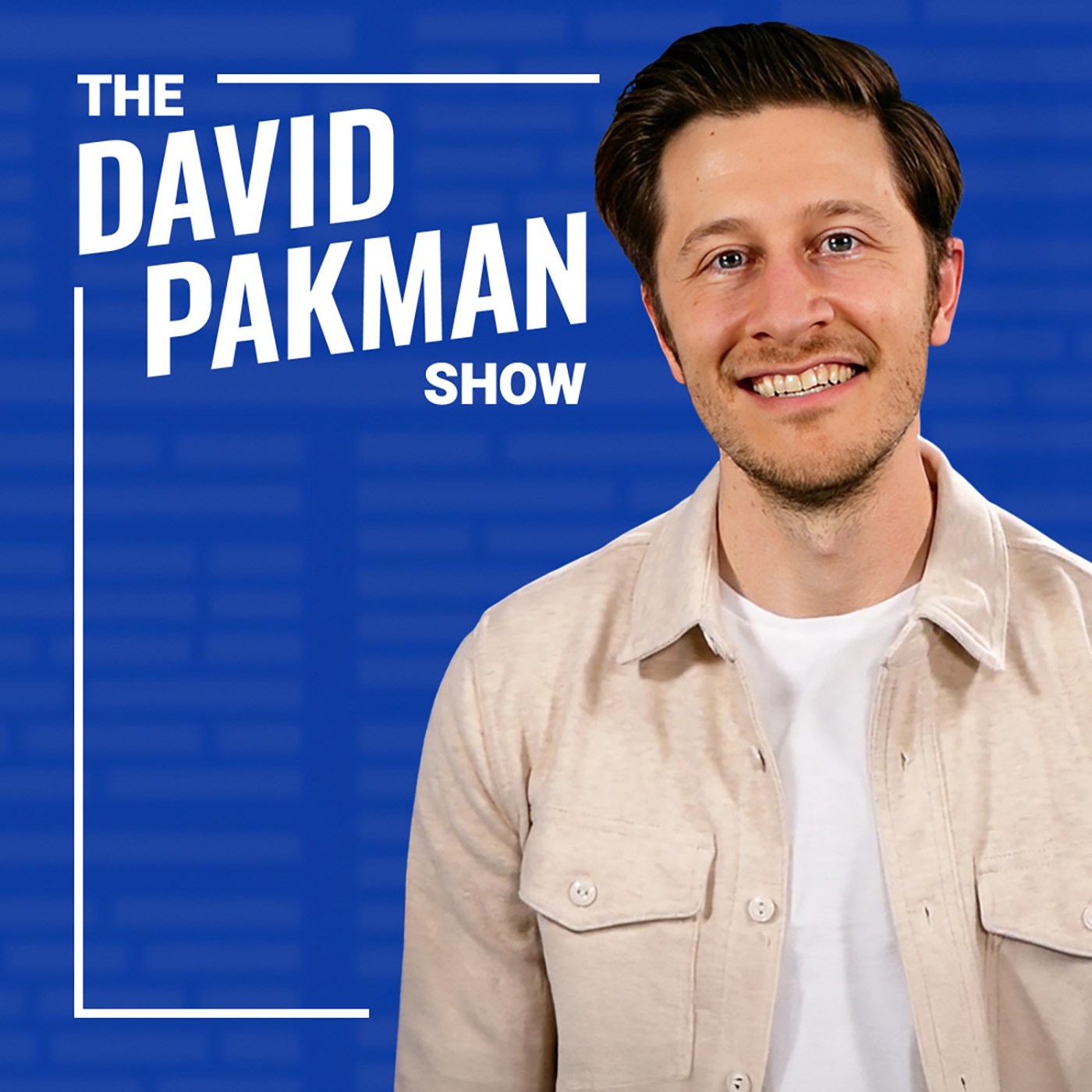
The David Pakman Show
David PakmanGet A Grip with Kendall Reusing
Kendall Reusing
Ultimately with R.C. Sproul
Ligonier Ministries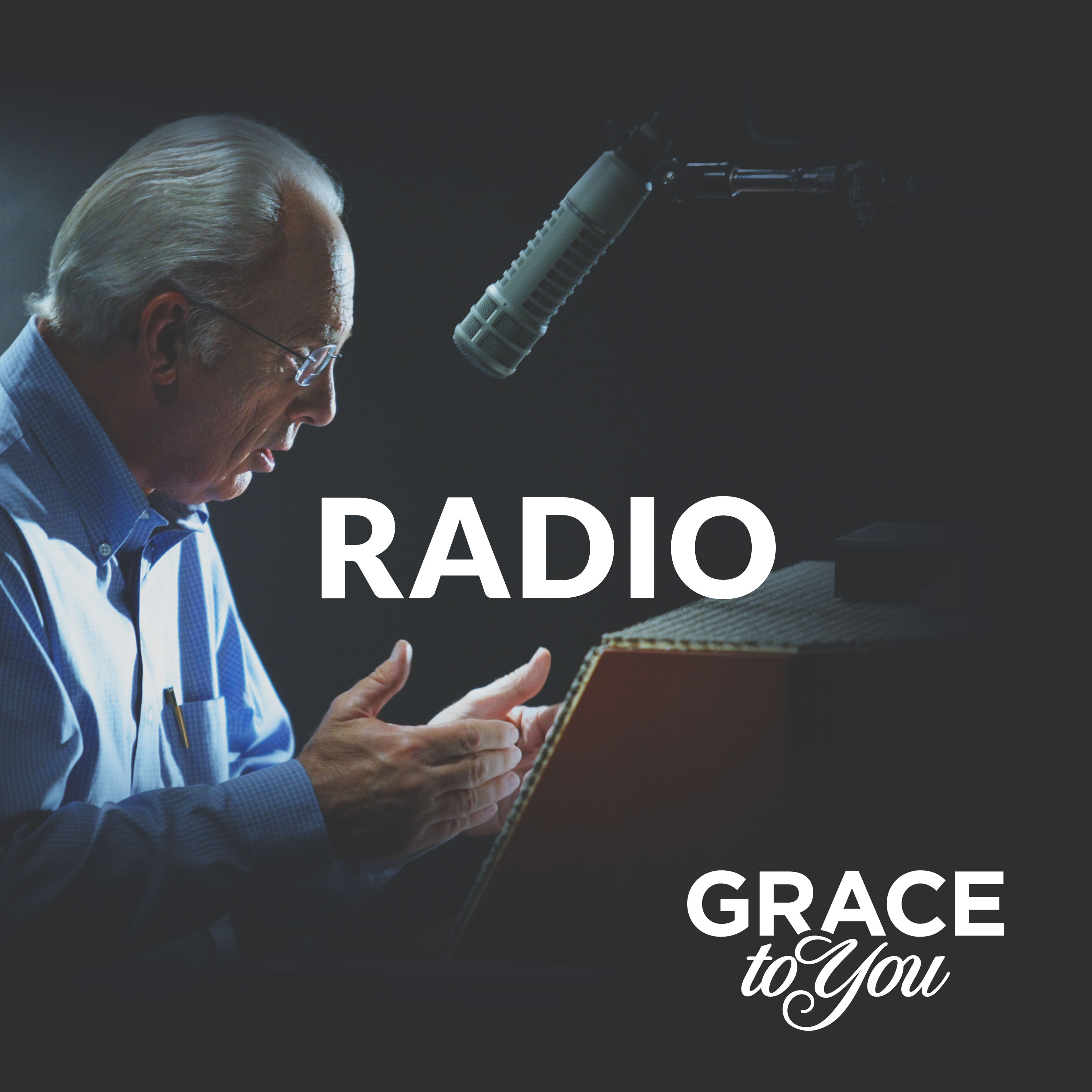
Grace to You: Radio Podcast
John MacArthur
The Briefing with Albert Mohler
R. Albert Mohler, Jr.
StarTalk Radio
Neil deGrasse Tyson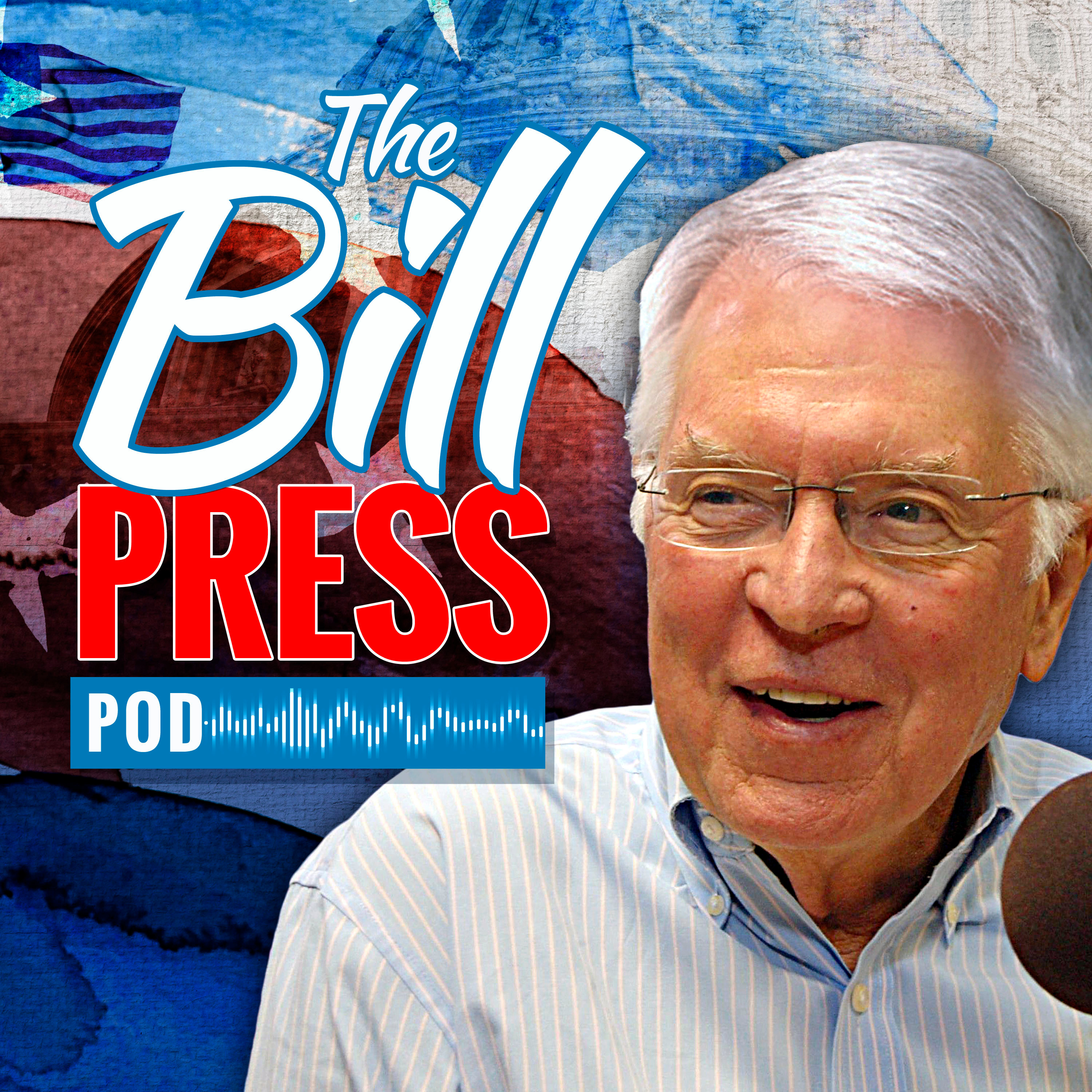
The Bill Press Pod
BP Pods
Ask Pastor John
Desiring God
The Weekly Show with Jon Stewart
Comedy Central
Ask Ligonier
Ligonier Ministries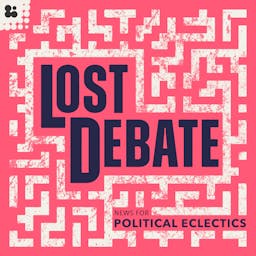
Lost Debate
The Branch
Coffee-Time-Again
Dale Hutchinson
5 Minutes in Church History with Stephen Nichols
Ligonier Ministries
The Ezra Klein Show
New York Times Opinion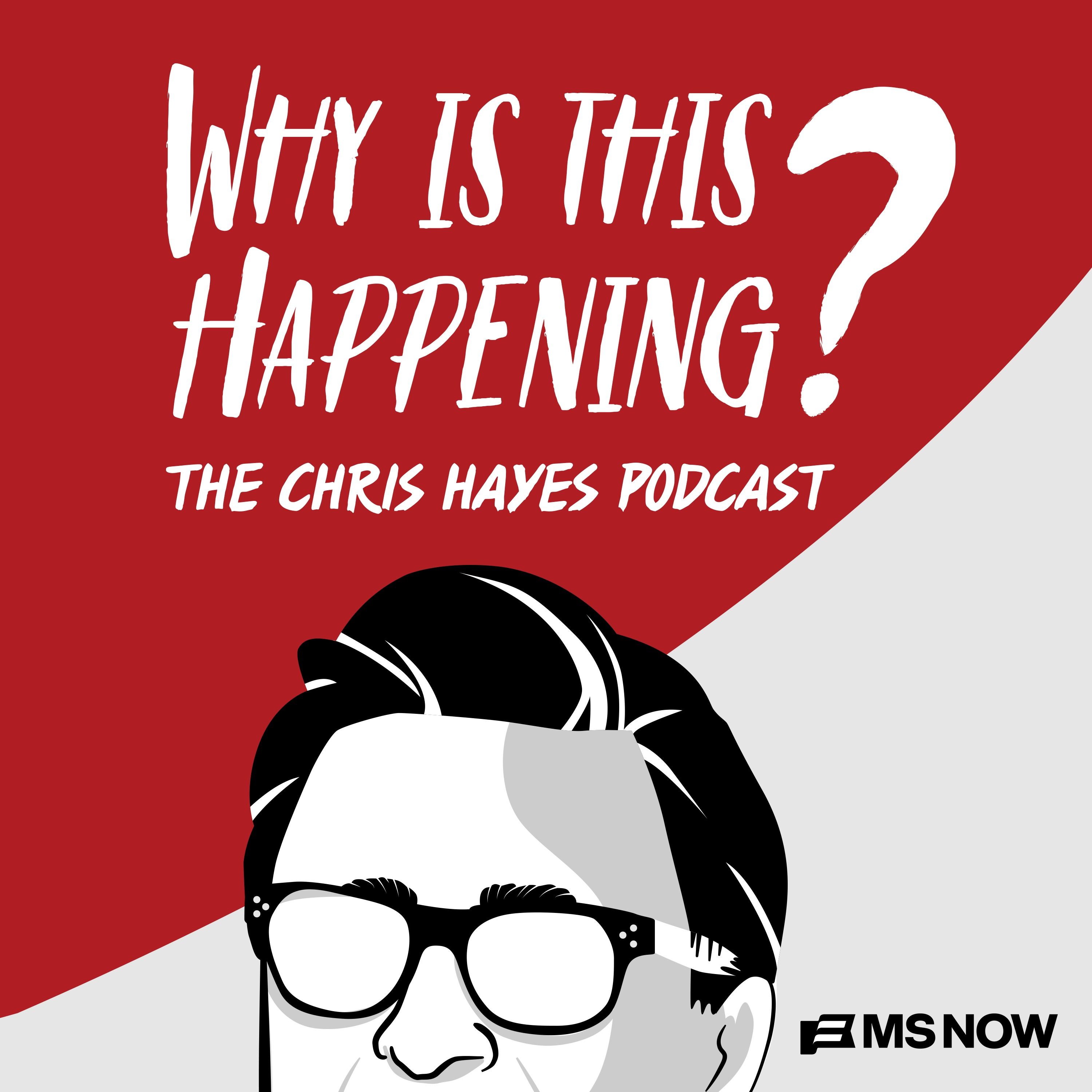
Why Is This Happening? The Chris Hayes Podcast
MS NOW, Chris Hayes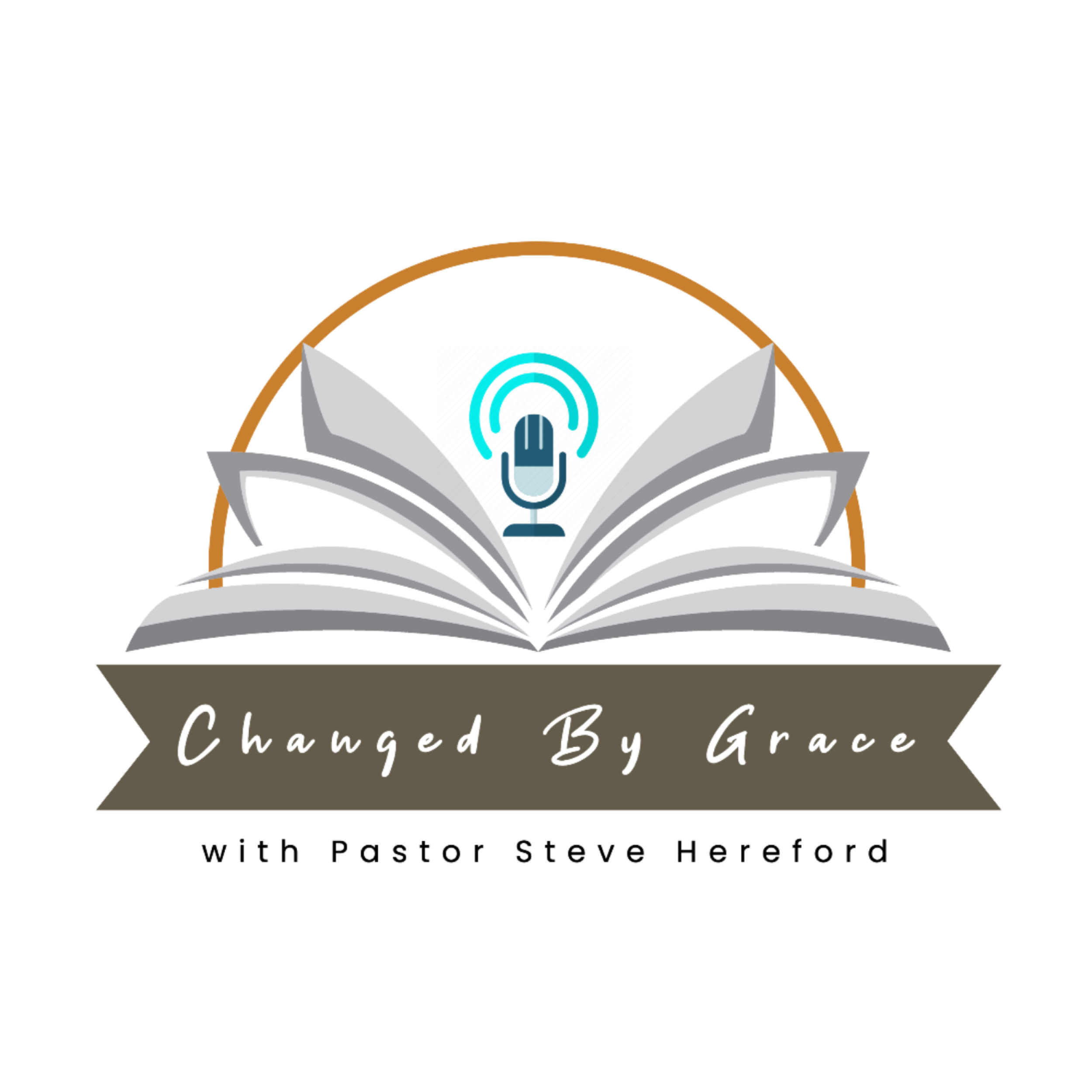
Changed By Grace
PodPoint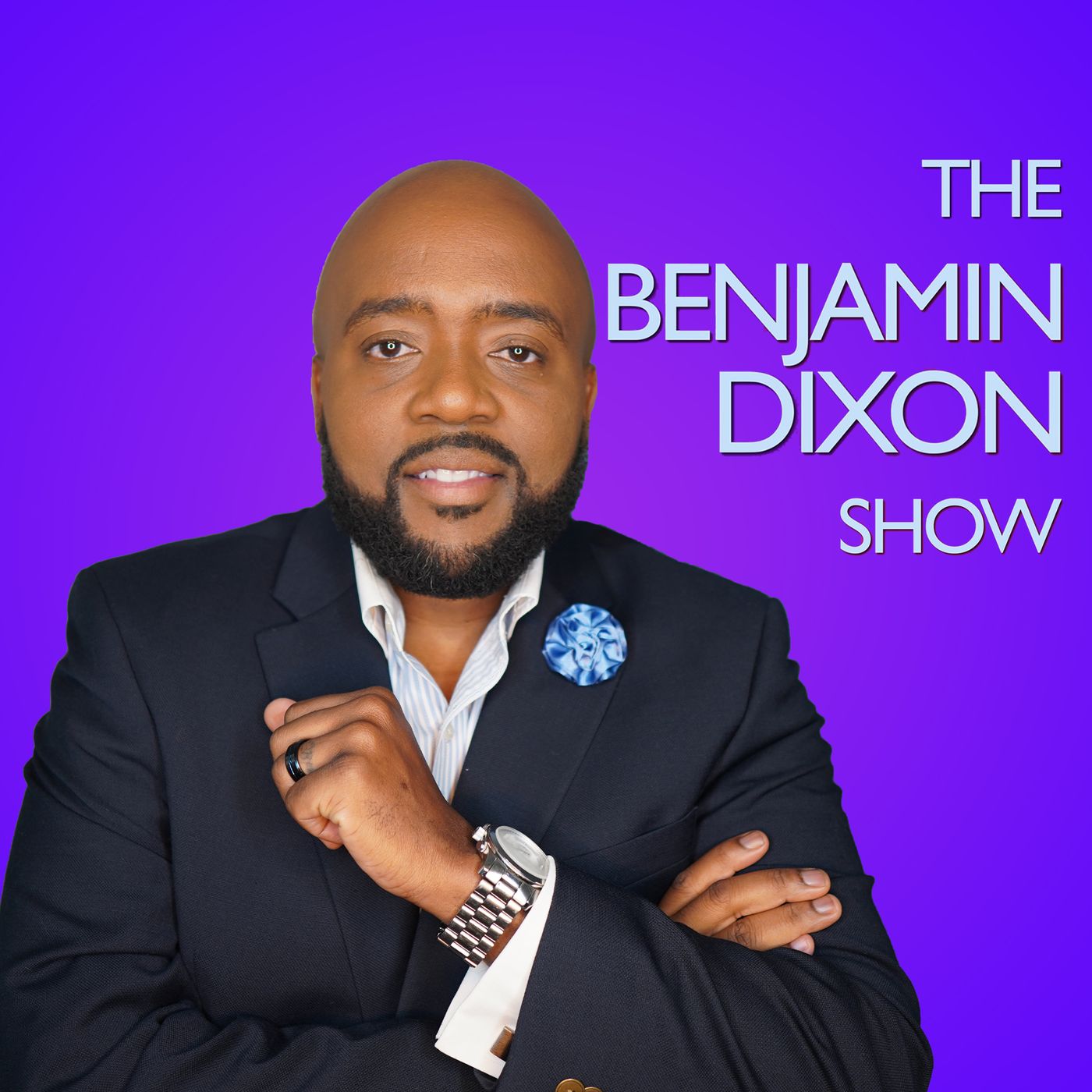
The Benjamin Dixon Show
The Benjamin Dixon Show
Thinking in Public with Albert Mohler
R. Albert Mohler, Jr.
Who Killed JFK?
iHeartPodcastsThe MacArthur Center Podcast
The Master's Seminary
Jean Jacques Machado : No Gi Required
Jay Zeballos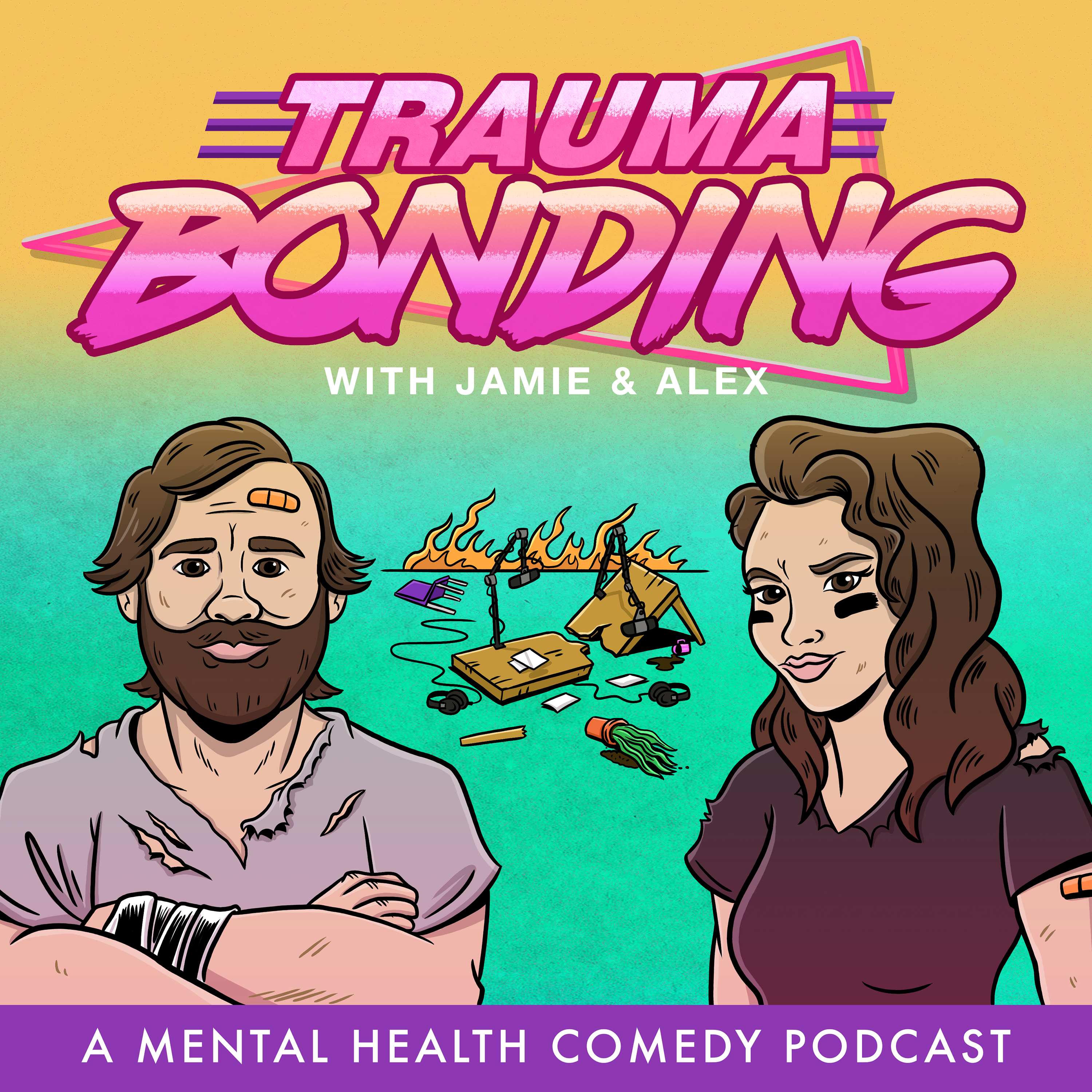
Trauma Bonding
Jamie Kilstein
This Day in History
The HISTORY Channel
The Ben Shapiro Show
The Daily Wire
The Sean Hannity Show
Sean Hannity
Breaking Points with Krystal and Saagar
iHeartPodcasts
The Kyle Kulinski Show
Kyle Kulinski